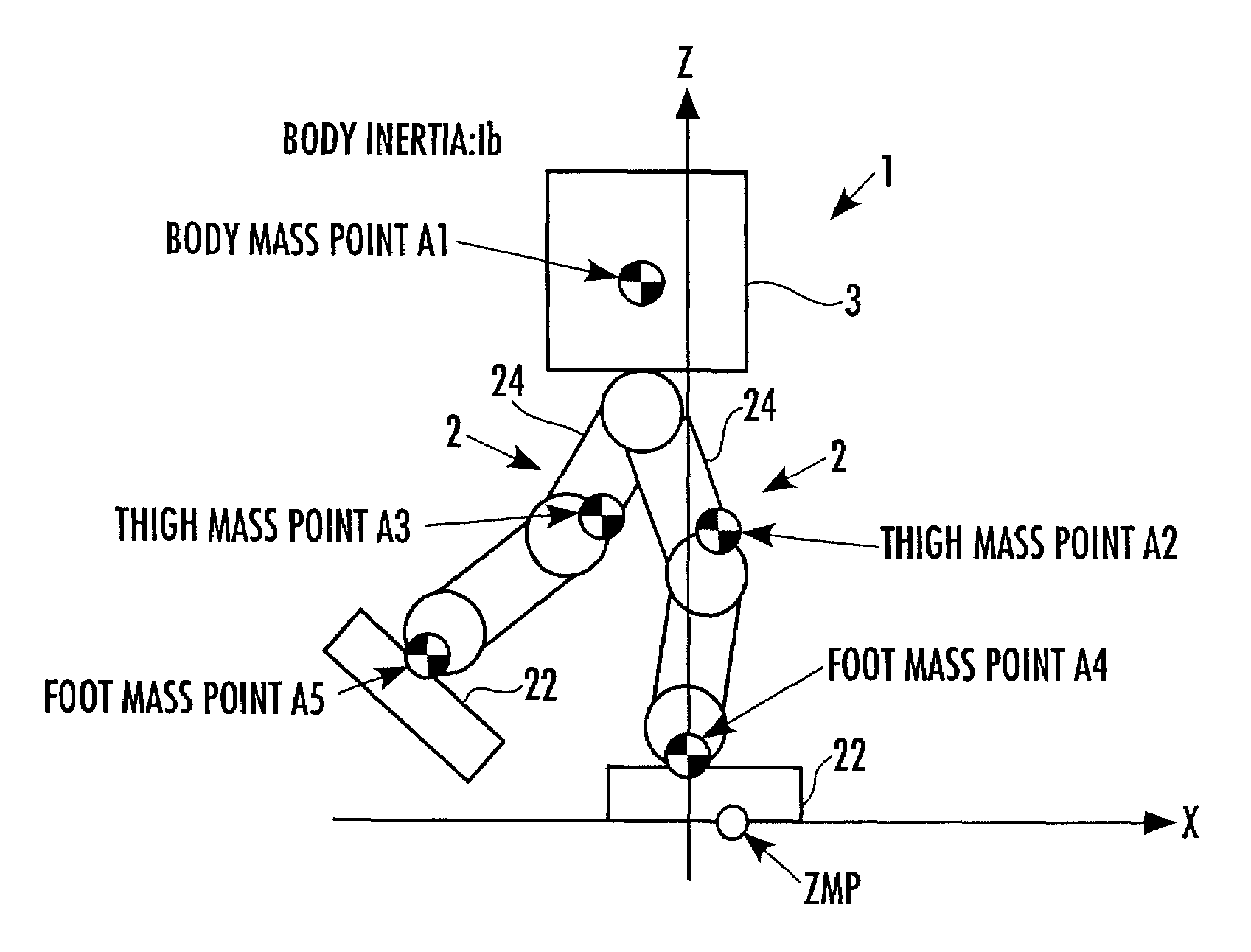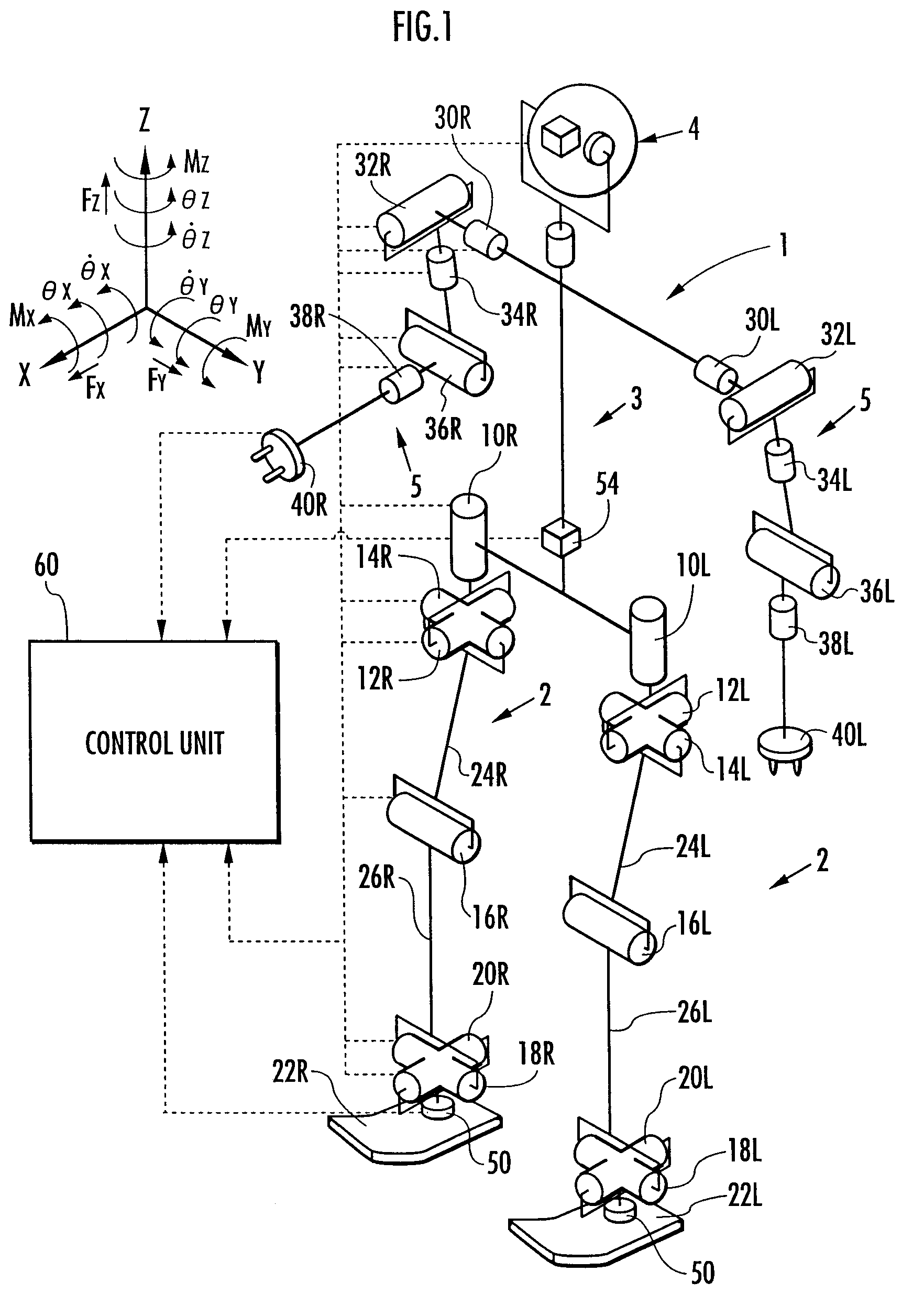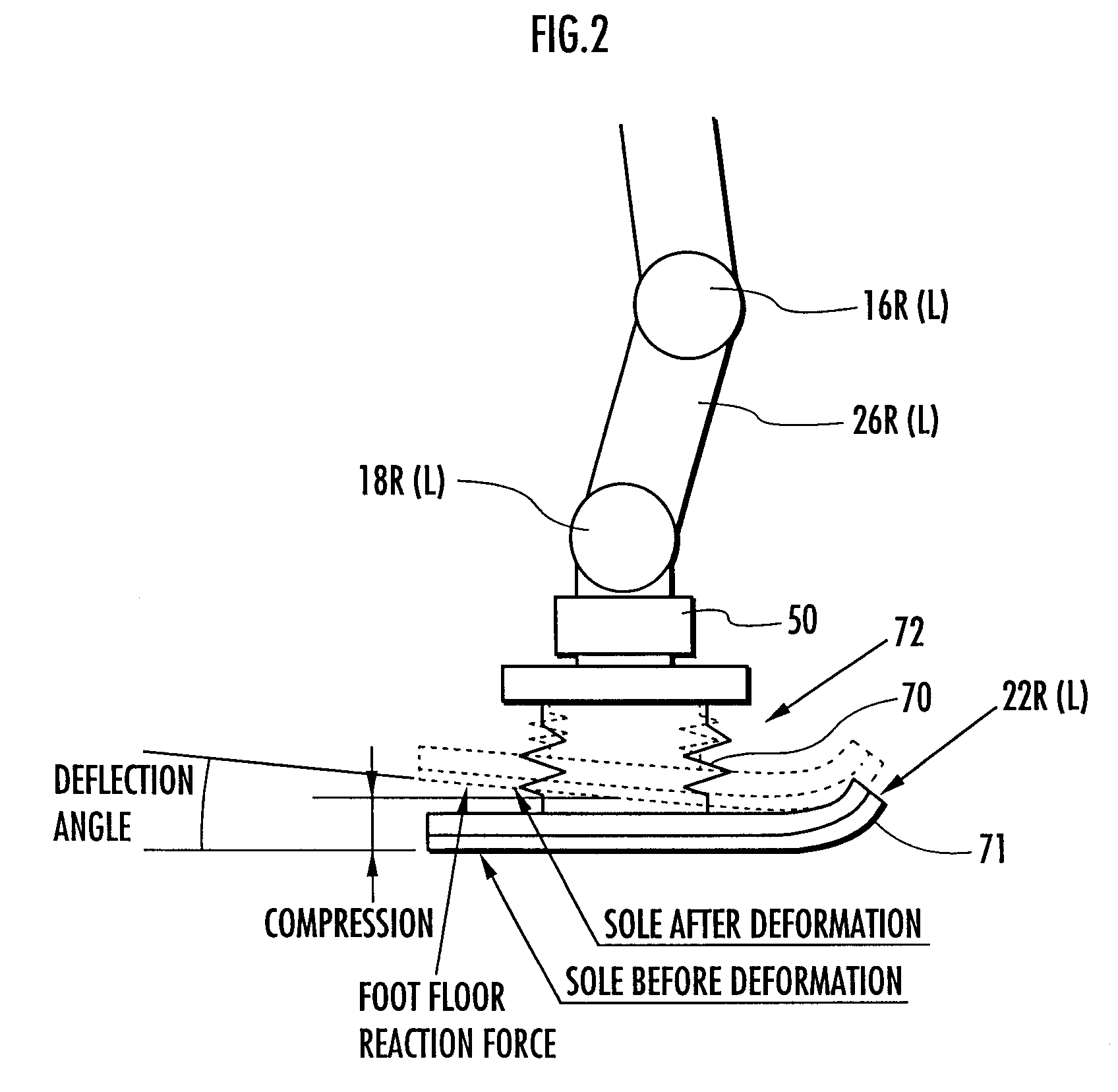Gait generating device of mobile robot
a technology of generating device and robot, which is applied in the direction of electric programme control, program control, instruments, etc., can solve the problem of frequent changes in the posture of the predetermined part in the first provisional correction instantaneous desired motion, and achieve the effect of improving dynamic accuracy, and reducing the risk of injury
- Summary
- Abstract
- Description
- Claims
- Application Information
AI Technical Summary
Benefits of technology
Problems solved by technology
Method used
Image
Examples
first embodiment
[0115]A first embodiment in accordance with the present invention will now be specifically explained. First, the simplified model (dynamic model), the first displacement dimension correcting model, and the second displacement dimension correcting model in the first embodiment will be explained. Incidentally, the first embodiment is an embodiment according to the first, the third, the fourth, the seventh to the ninth, and the eleventh to the fourteenth inventions mentioned above.
[0116]FIG. 6 shows the structure of a simplified model in the first embodiment. As illustrated, the simplified model is a one-mass-point model equipped with one mass point (body mass point) 3m corresponding to a body 3 of a robot 1. The robot 1 shown in FIG. 6 is the robot 1 schematically side-viewed, arms 5, 5 and a head 6 being omitted. In the figures following FIG. 6 (including the drawings of embodiments other than the first embodiment), when illustrating the robot 1, the arms 5, 5 and the head 6 will be ...
second embodiment
[0245]A second embodiment in accordance with the present invention will now be explained with reference to FIG. 18 to FIG. 22. In the present embodiment, the constructions of a robot 1 and a control unit 60 are the same as those in the first embodiment, whereas a simplified model, a first displacement dimension correcting model, and a part of the processing of a gait generating device 100 are different from those of the first embodiment. Hence, in the explanation of the present embodiment, the same reference numerals and drawings as those in the first embodiment will be used for the same parts as those in the first embodiment, and detailed explanation thereof will be omitted. The second embodiment represents an embodiment of the first, the third, the fourth, the seventh to the tenth, and the thirteenth to the fifteenth inventions of the present invention.
[0246]FIG. 19 shows a structure of a simplified model (dynamic model) in the present embodiment, and FIG. 18 shows a structure of ...
third embodiment
[0298]A third embodiment of the present invention will now be explained with reference to FIG. 23 to FIG. 25. The present embodiment shares the same construction of the robot 1 as that of the first and the second embodiments, and also shares the same structures of a simplified model, a first displacement dimension correcting model and a second displacement dimension correcting model as those of the second embodiment. And, the present embodiment differs from the second embodiment only in a part of the processing of a gait generating device 100. Hence, in the explanation of the present embodiment, the same reference numerals and drawings as those of the second embodiment will be used for the same portions as those of the second embodiment, and detailed explanation will be omitted. The following will explain the present embodiment, focusing mainly on the portions that are different from those of the second embodiment. Incidentally, the present embodiment is an embodiment of the second ...
PUM
 Login to View More
Login to View More Abstract
Description
Claims
Application Information
 Login to View More
Login to View More - R&D
- Intellectual Property
- Life Sciences
- Materials
- Tech Scout
- Unparalleled Data Quality
- Higher Quality Content
- 60% Fewer Hallucinations
Browse by: Latest US Patents, China's latest patents, Technical Efficacy Thesaurus, Application Domain, Technology Topic, Popular Technical Reports.
© 2025 PatSnap. All rights reserved.Legal|Privacy policy|Modern Slavery Act Transparency Statement|Sitemap|About US| Contact US: help@patsnap.com



